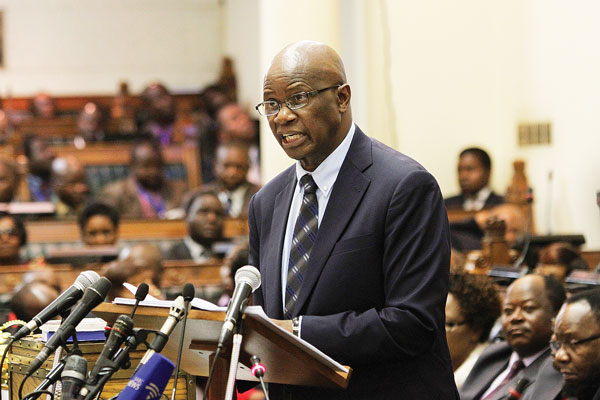
The news that civil servants will start receiving their bonuses at the end of this month should come as good news to public workers, but this could be a death knell to the moribund economy.
By paying civil servants their 13th cheque, government has assured pleasing one of its key constituents, but on a pragmatic level, this could be economically suicidal in the long run.
In all honesty, the government does not have the money and cannot afford the payments and the most realistic thing would be to suspend bonus payments until the economy is back on track, whenever that would be.
For the sceptics, do not take our word for it, but let us do the maths to see if government can afford to pay.
In the first half of the year, the Zimbabwe Revenue Authority (Zimra) set itself a target of collecting $1,76 billion, but managed $1,66billion.
With a reported 80% of this revenue expected to go towards salaries, it means the government has little or no room to manoeuvre.
If the government goes ahead with paying bonuses, as promised, bonuses and salaries will gobble about 160% of Zimra revenue, money the authority does not have, and the tax body has failed both in the first half and third quarter of this year to meet its revenue collection targets.
Without belabouring the point, the government simply has no money to pay bonuses and paying them now betrays a sickening failure to look at future implications.
- Chamisa under fire over US$120K donation
- Mavhunga puts DeMbare into Chibuku quarterfinals
- Pension funds bet on Cabora Bassa oilfields
- Councils defy govt fire tender directive
Keep Reading
While the government may get the plaudits in the short-term, in the mid to long-term, paying the bonuses will have untold effects.
Zimbabwe is already saddled with a bloated civil service and there are efforts to trim it, yet government interventions like audits and retrenchments are often piecemeal and ad hoc.
We understand that any disquiet from the civil service, particularly from the armed forces, is unwanted and not good for the government, but we believe authorities should have been up-front and honest in explaining the country’s economic situation and how this affects their bonuses.

It would be one thing for the government to pay bonuses this and next month and fail to pay salaries or government dues in future months.
If this were to be the case, then civil servants will become restive and the populist idea of paying bonuses will inevitably show government’s inadequacies.
In April, Finance minister Patrick Chinamasa, seemingly the only voice of reason in government, announced the practical solution of suspending bonuses, but got a reprimand from his boss, President Robert Mugabe.
As the man in charge of the country’s finances, he knew the dangers of paying bonuses and sought to do what was best for the country, but the voice of reason was dulled by populist self-serving rhetoric.
We are not saying workers should not be paid their 13th cheque, but by definition, a bonus is a payment made after a corporate or government has met set targets and is not mandatory.
Zimra have missed most of its targets, the government missed its gross domestic product projections and most companies were forced to retrench, as the economic woes continue to bite, therefore, where are the authorities getting money to pay bonuses?











